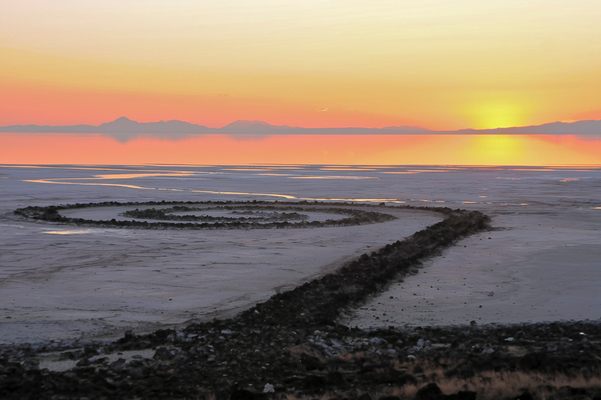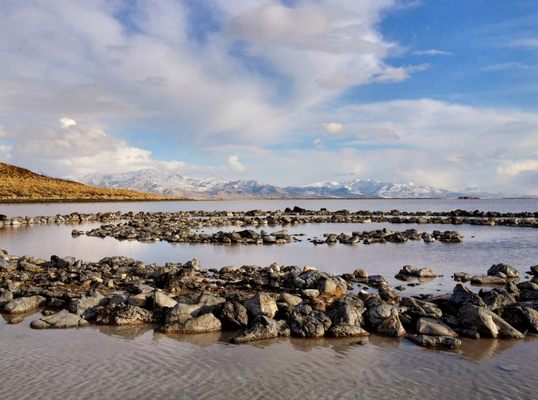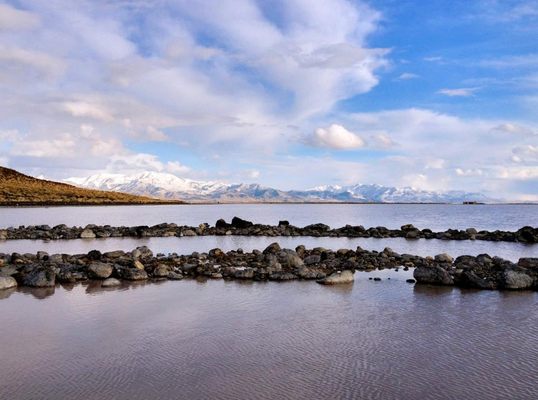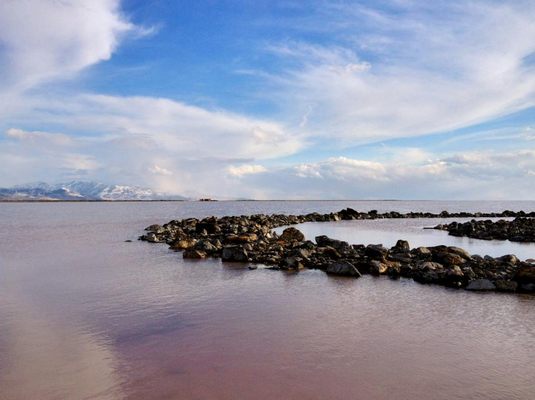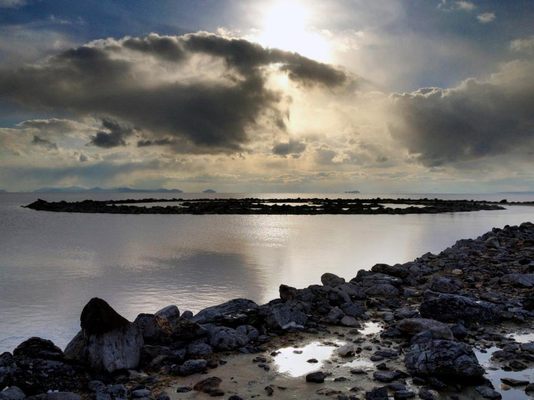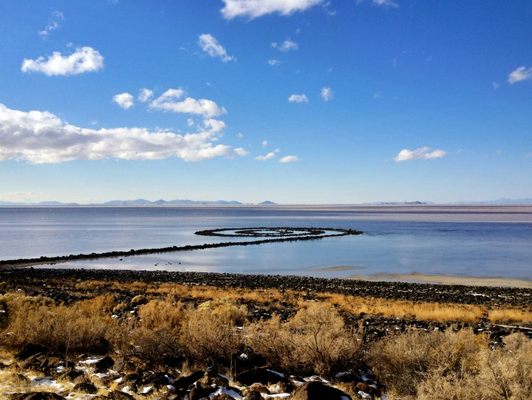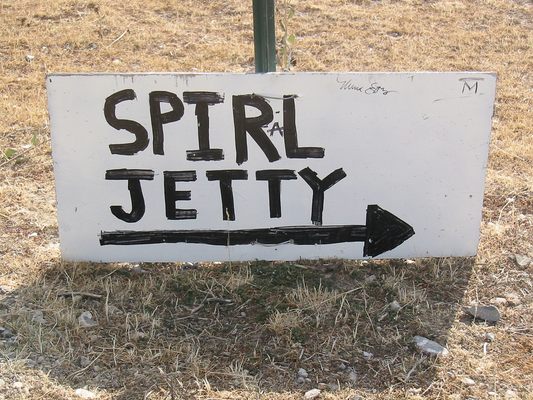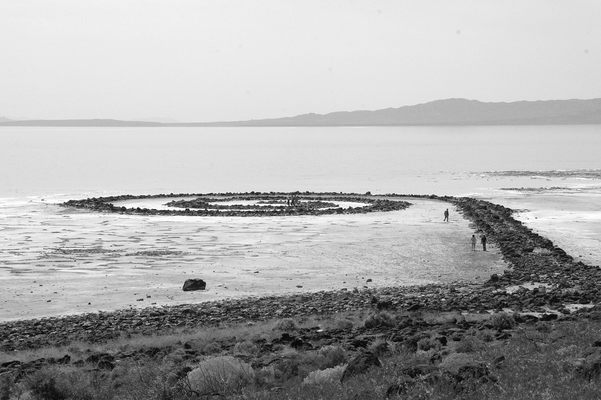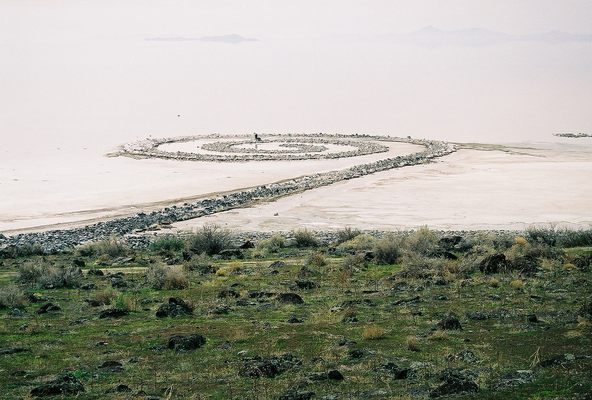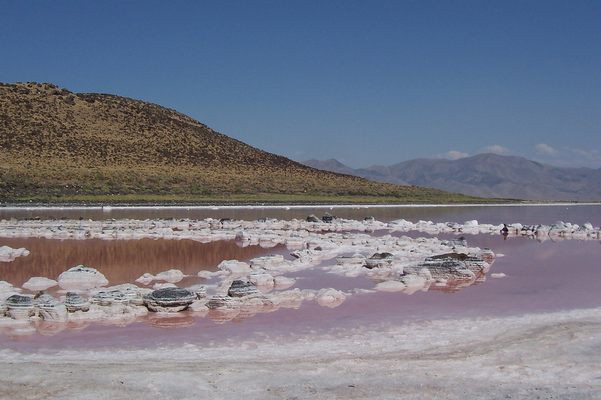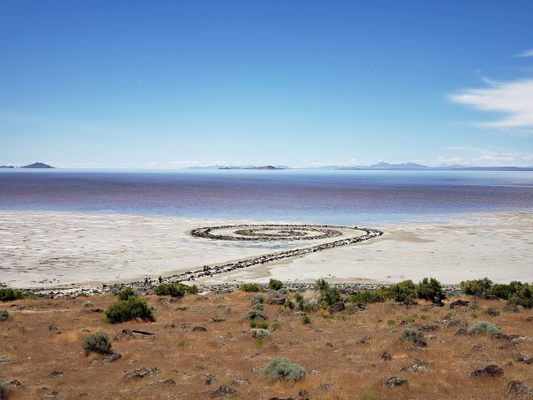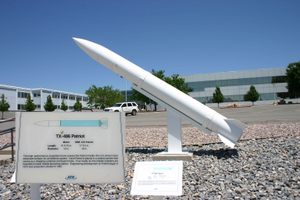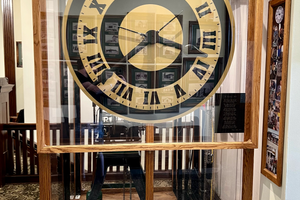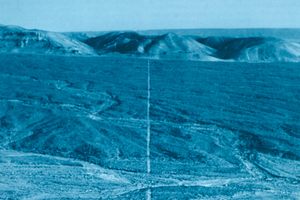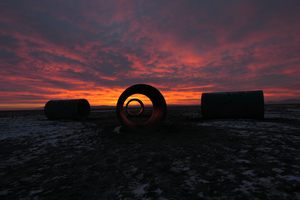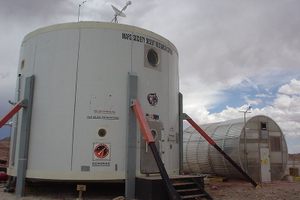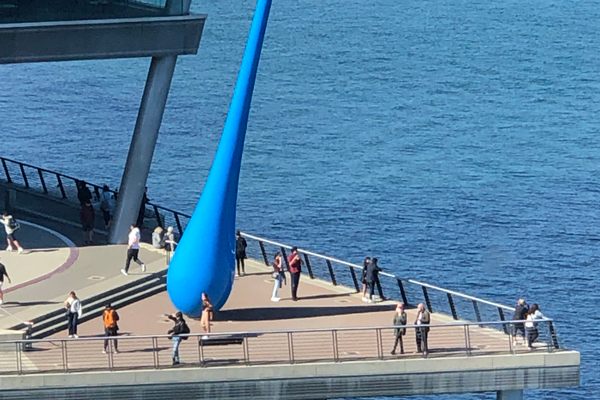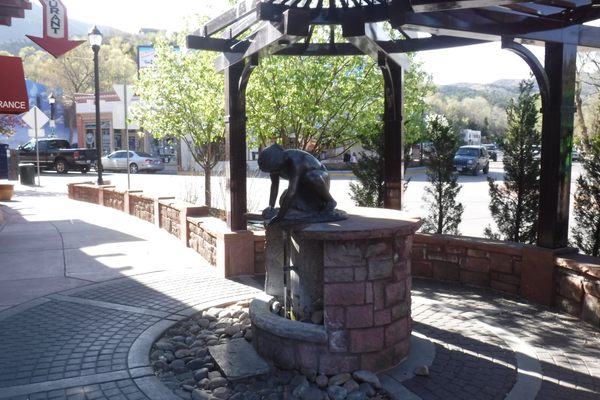About
Built in 1970 of mud, salt crystals, basalt, and dirt, the Spiral Jetty is 1,500 feet long and extends far out into the Great Salt Lake.
However, no one saw this work for over 30 years. Built during a drought by Robert Smithson, once the water levels returned to normal the spiral was then submerged for three decades, reemerging during a drought in 2004.
The black basalt rocks are now covered with white salt encrustations, and the water has a pink hue to it. The jetty disappears if the lake level is higher than 4,197 feet, and currently, the jetty is fully visible as the lake level is below its historical average.
There is a plan to restore the jetty, but not everyone agrees with the plan. The sculptor, who died in a plane crash only three years after completing the jetty, expressed a love of entropy and the eroding powers of nature. His project is part of a late 60s sculptural movement known as land art.
It is likely Smithson would have been very happy with the jetty's disappearing act and changing appearance.
Related Tags
Know Before You Go
Odometer readings vary with each vehicle. The distances given below are only approximations. The Department of Natural Resources has posted signs at each turn/fork to indicate directions to the Jetty. PLEASE DO NOT TAKE THESE SIGNS AS SOUVENIRS. 1. Go to Golden Spike National Historic Site (GSNHS), 30 miles west of Brigham City, Utah. Spiral Jetty is 15.5 dirt road miles southwest of GSNHS's visitor center. 2. To get there (from Salt Lake City) take I-15 north approximately 65 miles to the Corinne exit (exit 365), just west of Brigham City, Utah. Exit and turn right onto Route 13 to Corinne. LAST GAS before Spiral Jetty is in Corinne at the Sinclair truck stop. 3. Past Corinne, the road becomes Highway 83. Continue west for 17.7 miles. 4. Turn left onto "Golden Spike Road" and continue 7.7 miles up the east side of Promontory Pass to GSNHS. LAST BATHROOMS before Spiral Jetty are at the GSNHSs Visitor Center. 5. From the Visitor Center, drive 5.6 miles west on the main gravel road to a fork in the road. Continue left, heading west. (From this vantage, the low foothills that make up Rozel Point are visible to the Southwest.) 6. Immediately you cross a cattle guard. Call this cattle guard #1. Including this one, you cross four cattle guards before you reach Rozel Point and Spiral Jetty. 7. Drive 1.3 miles south to a second fork in the road. Turn right onto the southwest fork, and proceed 1.7 miles to cattle guard #2. 8. Continue southeast 1.2 miles to cattle guard #3. 9. Continue straight 2.8 miles south-southwest to cattle guard #4 and an iron-pipe gate. 10. At this gate the Class D (gravel) road designation ends. From here, four-wheel drive, high clearance vehicles are strongly recommended. 11. If you choose to continue, drive south for another 2.7 miles, and around the east side of Rozel Point, you will see the Lake and a jetty (not Spiral Jetty) left by oil drilling explorations that ended in the 1980s. 12. Southwest beyond the site of the oil jetty, turn right onto a two-track trail that contours above the oil-drilling debris below. Travel slowly--the road is narrow, brush might scratch your vehicle, and the rocks, if not properly negotiated, could high center your vehicle or blow out your tires. Don't hesitate to park and walk. Spiral Jetty is just around the corner. 13. Drive or walk 6/10th of a mile west around Rozel Point and look toward the Lake. Spiral Jetty may be in sight. The lakes levels vary several feet from year-to-year and from season to season, so Spiral Jetty is not always visible above the water line. *addendum circa 2012: the road has been much improved since the above was written, is signed and navigable by passenger car though high clearance is much preferable. google maps will direct you to Spiral Jetty, though cell service is intermittent past the golden spike museum.
Community Contributors
Added By
Published
July 21, 2016
Sources
- http://www.diaart.org/sites/main/spiraljetty
- http://clui.org/ludb/site/spiral-jetty
- http://clui.org/category/ludb-keywords/land-art
- http://climb-utah.com/WM/spiraljetty.htm
- http://www.robertsmithson.com/earthworks/spiral_jetty.htm
- http://en.wikipedia.org/wiki/Spiral_jetty
- http://www.globalartmagazine.com


